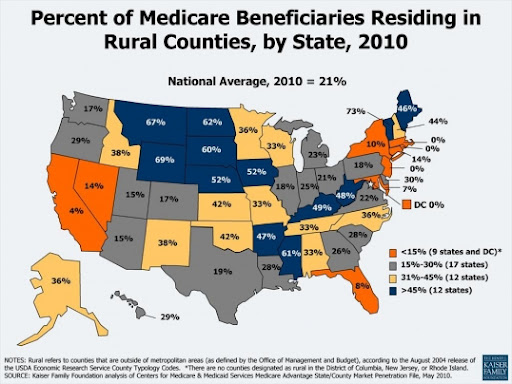Care in rural hospitals is just as good as that in urban hospitals, study concludes

The study also found rural health care is not more expensive than urban care. “However, urban residents rarely out-migrate to rural settings for either routine or advanced treatments or care yet many rural patients are referred to or voluntarily travel to urban providers based on the myth of better care,” a summary of the study says.
The study was compiled by iVantage Health Analysis, a private health-care research company. It collected data on Medicare costs and health outcomes for doctors and hospitals for 12 months and divided the results into rural and urban groups based on zip codes, to give a picture of the state-by-state importance of rural hospitals.
In Kentucky, nearly half of its Medicare beneficiaries lived in rural counties in 2010. Nationwide, just 21 percent of them do, though there were western states with much higher percentages. In Wyoming, for example, 69 percent of Medicare beneficiaries live in rural places. Spending per Medicare beneficiary in Kentucky was nearly $8,000 in both urban ($7,851) and rural ($7,879) settings in 2010. That spending is high compared to the rest of the country, however; only nine other states had higher spending.
The study could have wider wider ramifications given changes in the federal health-care reform law and the move toward accountable care organizations, in which doctors and other providers are encouraged to team up to give coordinated care for a population of people and be paid financial incentives to do so.
“Value in health care is created by doing a few things well and not by trying to do everything,” the summary reads. “The rural findings may just suggest that by national selection, rural has figured out what it does well and has optimized those services for the patient’s benefit.” (Read more)
